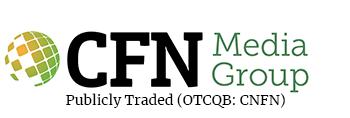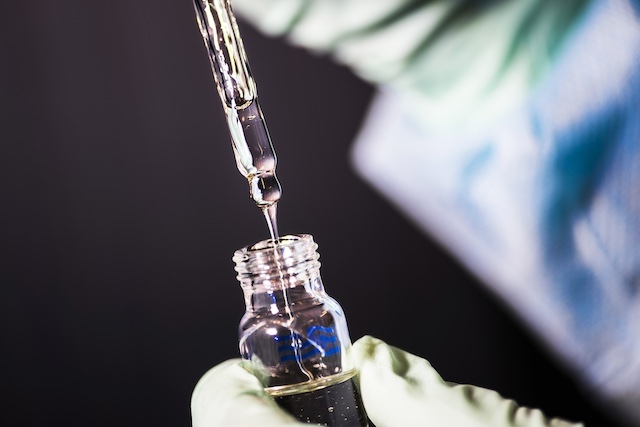Orphan drugs treat conditions with less than 200,000 patients annually in the United States. In the European Union, the bar for orphan medicine designation is set at about 224,000 patients. In each jurisdiction, the orphan programs are designed to encourage development of treatments for rare diseases that might otherwise be overlooked and underserved. In the US, benefits from the designation can include a seven-year exclusive marketing period upon approval, tax credits to offset investigational expenses, waiver of certain filing fees, grant funding, and assistance with drug development.
Although the patient populations are relatively small, there is a significant opportunity to generate substantial revenues through the orphan drug development pathway – more than you might imagine. And the impact an orphan drug approval can have, especially on a smaller company, is momentous. Here we’ll examine the orphan drug market in general and take a look at the impact of some past approvals.
In light of this review, we’ll take a look at Cardiol Therapeutics Inc. (Nasdaq: CRDL) (TSX: CRDL) and its clinical trial programs. The company is conducting two Phase 2 trials for orphan drug-eligible heart conditions (acute myocarditis and recurrent pericarditis) and plans to apply for the orphan drug designation in both the US and Europe.
The Current Market
Orphan drugs are a large, high growth segment of the pharmaceuticals market. A recent report estimated that by 2026 orphan drug sales will account for 20% of all prescription drug sales. Pharmaceutical market share for orphan drugs is growing at a compound annual growth rate of 12%, more than twice as fast as the rest of the market. In 2021 over half of the drugs approved by the Federal Drug Administration were for orphan indications.
This is a phenomenon driven largely but not exclusively by big pharma companies. As of 2021, the Congressional Budget Office found that since 2009 about one-third of new drug approvals went to companies with less than $100 million of annual revenue. Large companies with over $1 billion in revenue account for more than half of drug approvals and an even greater share of revenues. Smaller drug companies, responsible for over 70 percent of Phase 3 clinical trials, often go unrecognized despite their crucial role in the approval process.
So big pharma is developing some of their own drugs, but also acquiring a large share of drugs that have been researched and developed by smaller companies. The smaller companies can go to market; however, they are often acquired by (or the drug is licensed by, or co-marketed by) larger companies as they reach the finish line. Either way, meaningful value is created along the way.
An interesting study conducted in 2017 examined the effect an orphan drug designation can have on public company valuations. This is not an approval, but an acceptance into the program that often occurs around the Phase 2 stage of the clinical trial process. The study found that the smaller the company, the greater the impact of the designation. Micro-cap companies on average experienced a bump of about 4.25% following the designation, while small caps and larger companies stayed about the same. Of course, successful Phase 2 and Phase 3 results can be significant value drivers as well.
Real World Examples
Cardiol Therapeutics is currently conducting two Phase 2 clinical trials for orphan-eligible conditions, acute myocarditis and recurrent pericarditis. With a market capitalization of about $80 million, Cardiol falls clearly in the category of a micro-cap drug developer whose valuation could be very reactive to developments such as an orphan drug designation, or advancements/results, for their drug being tested in its clinical trial programs.
Some recent examples of other companies that have focused on orphan drug R&D include Myokardia, GW Pharmaceuticals, and Kiniksa Pharmaceuticals.
Myokardia was acquired by Bristol Myers Squibb in 2020 for $13.1 billion, based largely on the drug Mavacamten. Mavacamten treats obstructive hypertrophic cardiomyopathy, a disease that affects about 100,000 Americans annually. It was granted orphan drug status in 2016 and approved by the FDA in 2022. In spring 2016, Myokardia’s stock was trading around $12 and went up to about $20 in the few months following the orphan designation. After a settling period, the company announced positive topline results from a Phase 2 trial in August, 2017 and the stock shot up to about $40. In May 2020 Myokardia announced that all endpoints in the Phase 3 study had been met, and the stock price shot up over $100. In August 2020 the positive Phase 3 results were published, resulting in another boost to about $140. In October the acquisition was announced at $225/share.
GW Pharmaceuticals was acquired by Jazz Pharmaceuticals in 2021 for $7.2 billion. The deal was based largely on Epidiolex, an orphan-designated drug approved to treat two rare forms of childhood epilepsy. The deal represented a ~50% premium over GW’s closing price when it was announced. Epidiolex is a form of cannabidiol, a non-psychoactive compound found in cannabis, and was the first FDA-approved therapeutic based on a purified drug substance derived from cannabis. GW started a Phase 2/3 trial in October 2014 and followed with more Phase 3 trials in 2015. The drug was granted orphan status by the FDA in April 2015. In June 2018 the FDA approved the drug for treatment of the two forms of epilepsy. Along the way to approval from the initial Phase 2/3 trial in 2014, the stock rose from about $63/share to about $138/share, which is essentially where the stock price was when the acquisition was announced for $220/share.
Kiniksa Pharmaceuticals’ story is a bit more complicated, focused on the drug rilonacept (trade name ARCALYST) for the treatment of recurrent pericarditis. Rilonacept was discovered by Regeneron Pharmaceuticals and approved for treatment of rare auto-inflammatory conditions in 2008. It’s an interleukin-1 blocker, and Kiniksa licensed ARCALYST from Regeneron in 2017 and investigated its potential as a therapy for pericarditis. In 2019 it was granted Breakthrough Therapy designation by the FDA, and in 2020 the Orphan Drug designation followed. In March 2021 ARCALYST was approved for recurrent pericarditis treatment. At the time of the Breakthrough Designation, Kiniksa’s market cap was about $380 million. At the time of approval, the company was valued at about $1.375 billion. ARCALYST is Kiniksa’s only approved drug.
Cardiol Therapeutics
The examples listed above highlight the similarities to Cardiol Therapeutics’ potential. The patient populations are generally similar in all cases. Myokardia’s drug treats a rare heart disease, and Cardiol is investigating two rare heart diseases. GW pioneered the approval and use of cannabidiol, and Cardiol’s active ingredient is a pharmaceutically manufactured version of cannabidiol. Kiniksa’s drug is the first approved to treat recurrent pericarditis but comes with significant cost to the patient and a batch of side effects. Cardiol anticipates lower prices and no significant side effects for CardiolRx™.
History shows the value of pharmaceutical drug development in general, and orphan drugs in particular. History also shows the impact of the stepwise advancement of orphan drugs on the valuations of smaller drug developers and Cardiol Therapeutics’ pathway may echo past experiences. Find out more about Cardiol Therapeutics on its website, and pay attention as the company progresses through the clinical trial and drug approval processes.










